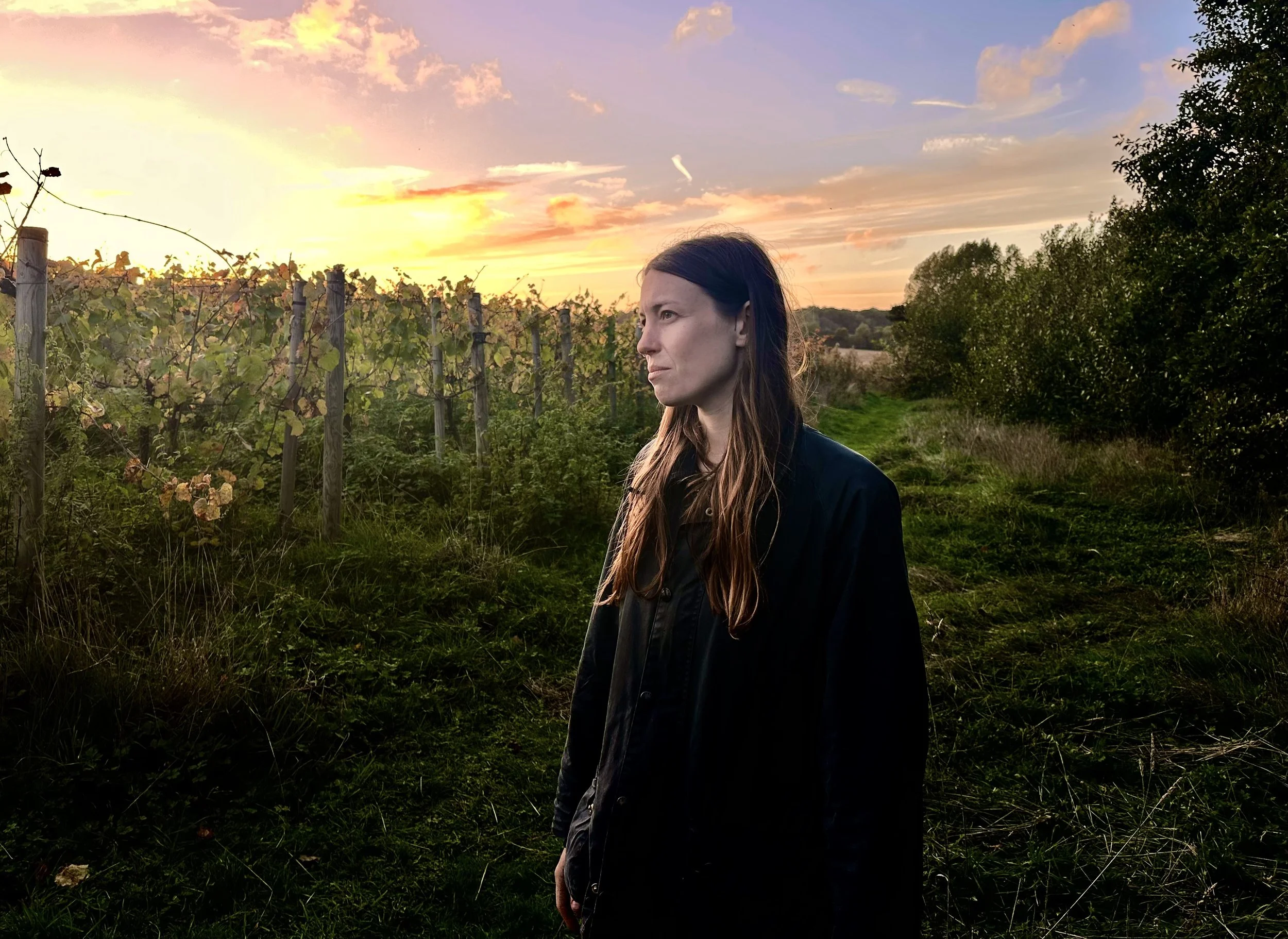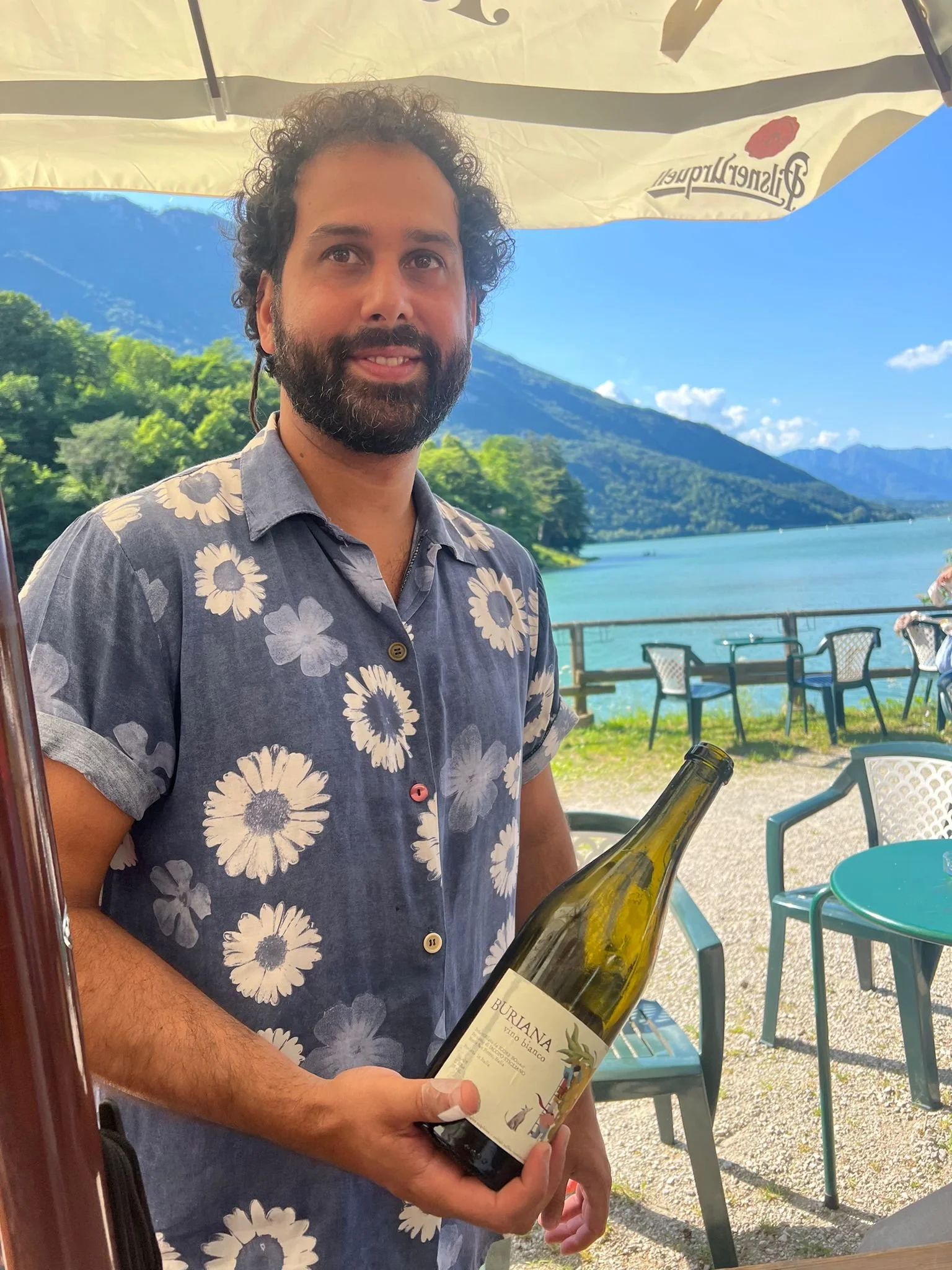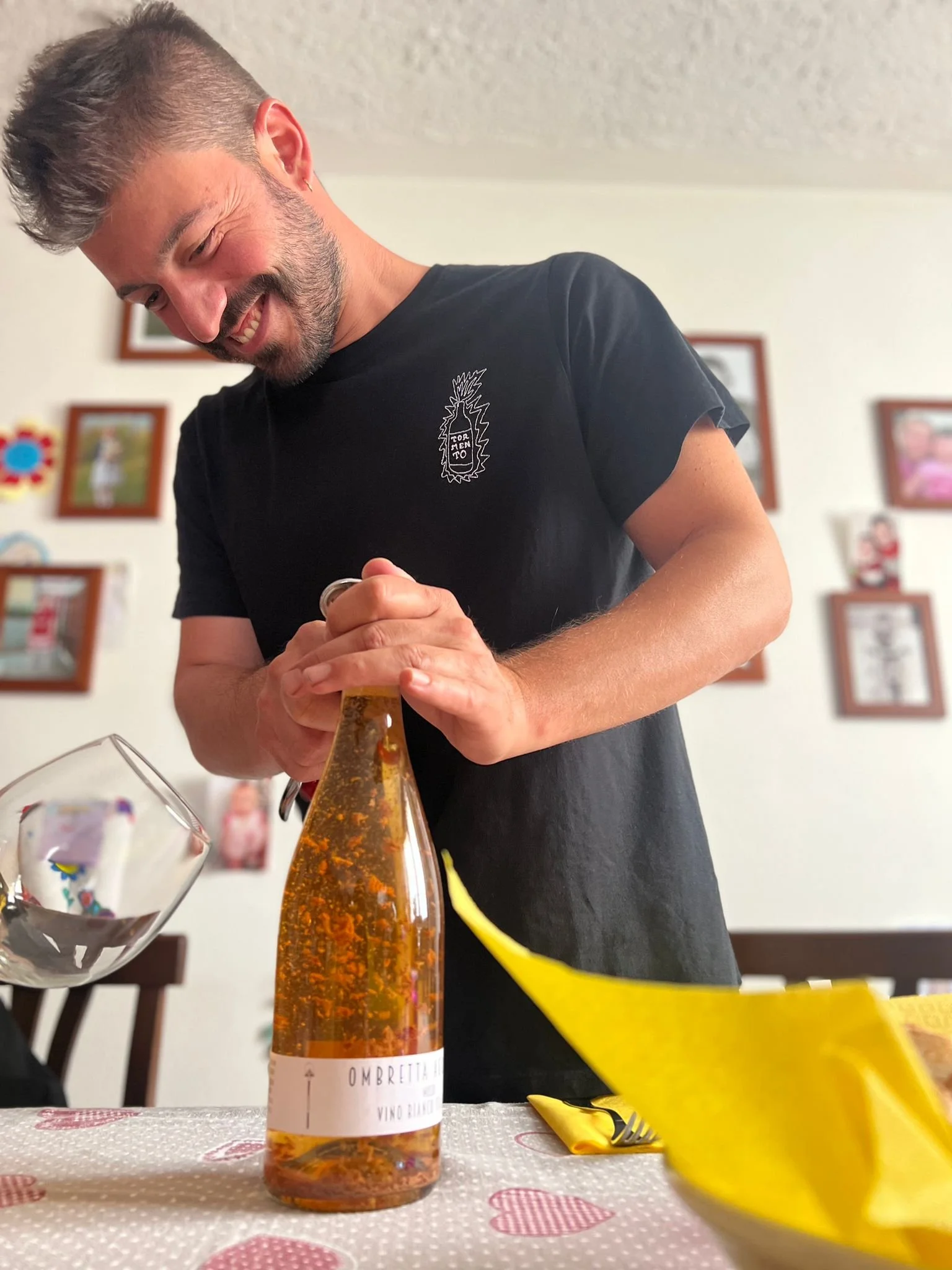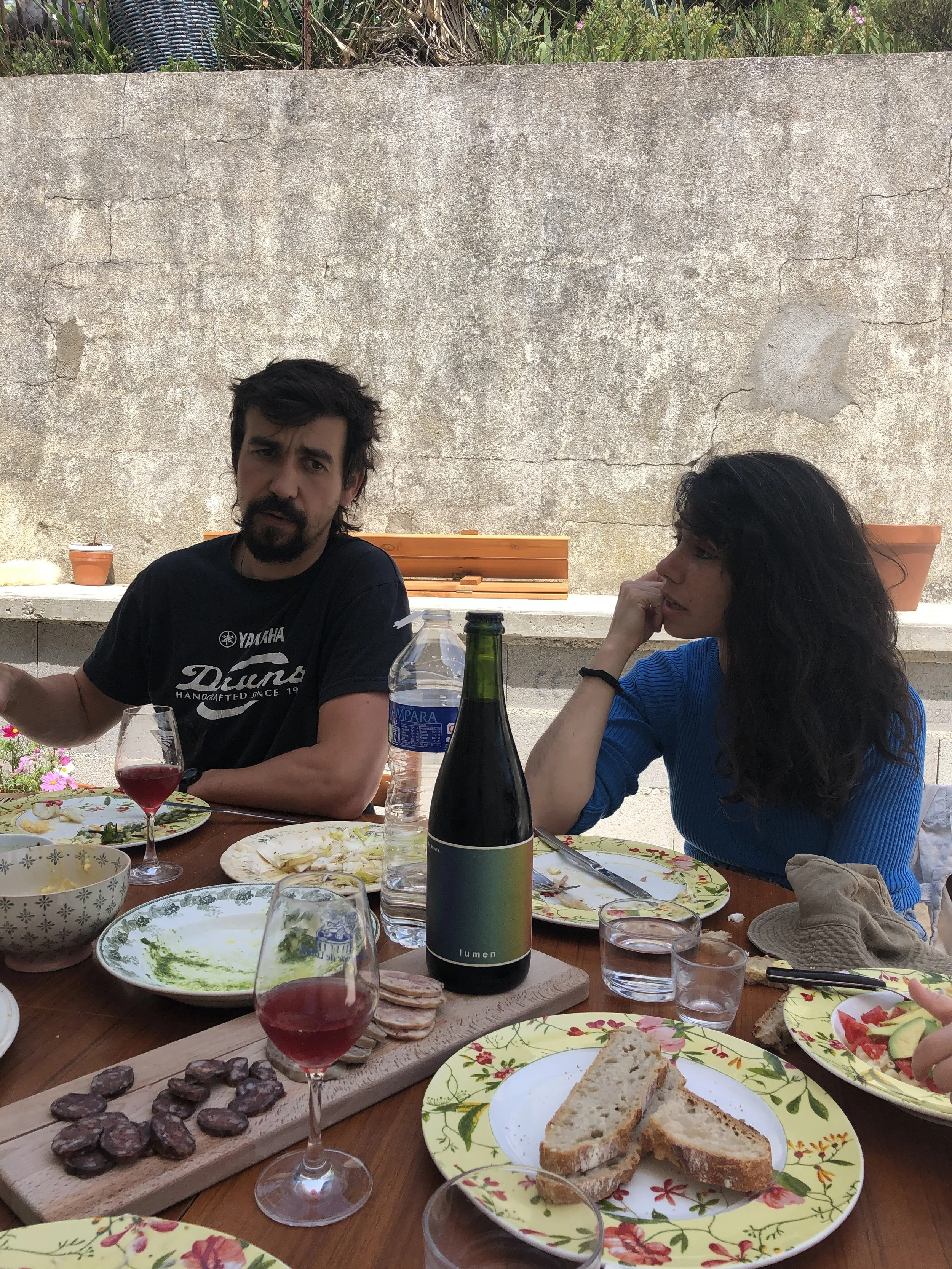Wine Fair- Meet the Wine Makers
At our next wine fair on 19/11 we will be celebrating the opportunity for us to welcome some of the wine makers we work with and their importers, to share their wonderful work with us.
We will be joined by Sophie Evans, Anna and Jean Benoît, Alex Della Vecchia and Jacopo Stigliano.
Spanning the breadth of Europe, they are all fully engaged in a system of wine production that we believe in, who create wines with precision, responsibility and methods that sustain our eco-system.
Sophie Evans
After studying winemaking in the UK, Sophie travelled to work alongside our good friends Michael & Melanie Voelker at 2Naturkinder.
Whilst working there Sophie made her first two wines in their cellar: one from a small parcel of the Voelker's Silvaner farmed by-hand after work (the steep roads were too bracing for Michael to reach by tractor!) and another sourced from a local biodynamic grower after falling in love with the lesser-seen Blauer Silvaner.
In the summer of 2022, Sophie bottled her German wines and returned back to the UK to farm a hectare of her own vines. Growing wild down a country lane in Kent, Sophie works attentively with teas, ferments, and essential oils for disease control alongside biodynamic treatments.
Working with Pinots Gris & Noir, alongside a small planting of hybrid varieties, her eagerly anticipated first English vintage is a testament to her attention to detail, intuition and sheer love for winemaking.
Jacopo Stigliano:
Jacopo farms around three hectares of ancient vineyards in Valsamoggia, a series of hills between Bologna and Modena in Emilia-Romagna. Originally from the province of Bologna, wine has been everything to Jacopo since a young age and after decades travelling the world he returned to Emilia in 2018. Seeking a return to his roots, upon consulting older growers in the region, he set about discovering and restoring abandoned old vineyards in the hope of bringing energy to the territory and shining a light on the work of the vignaioli of old.
The vines are up to one hundred years of age and grow amongst woods and orchards, occasionally right up in the canopy. Harking back to a tradition of Italian agriculture celebrated in another age, they are home to over twenty varieties, making for a kind of open air library of grapes. Planted on hillsides between two hundred and three hundred metres above sea level, the soils are a mix of clay and limestone and are littered with stones, lending the wines a pronounced minerality.
Jacopo’s work in the vineyards is focused on retaining the incredible diversity he has been blessed with. He does everything by hand and does not work the soil at all, trying not to interfere with these complex ecosystems. He believes that diversity brings richness and complexity, with each variety adding harmony to the final blend.
All grapes are harvested, fermented and aged together, paying respect to the Italian tradition of the field blend and in the cantina his work is simple and precise. Believing that wine is made in the vineyard, Jacopo bottles his wines unfiltered, with nothing added at any stage.
His complex, nourishing wines offer fascinating expressions of vineyards which are truly unique.
Alex Della Vecchia
Farming vineyards in the shadows of the Dolomites, Alex Della Vecchia is proving himself to be a prodigious talent.
Having learned his craft alongside the late, great Ernesto Cattel of Costadilà, a highly respected, humble visionary who was single handedly responsible for preserving the traditions of the Prosecco of old, Alex began his own project, Ombretta Agricola in 2017.
In 2010 he planted one and a half hectares of Pinot Nero on his family’s farm in Belluno, right at the foot of the Dolomites. This dramatic vineyard surrounded by mountains is planted over alluvial marl some six hundred metres above sea level, near the banks of the River Piave. His family live in an old monastery which dates back to the 16th Century, keeping donkeys, goats and cows alongside the vines. The wines from this site are named Pedecastello, after the road that winds amongst the mountains.
A little further down the river in San Donà di Piave, Alex farms four hectares of Verduzzo Trevigiano, Merlot and Cabernet Sauvignon. Here the vines are thirty years old and planted over alluvial soils, just two hundred metres above and twenty kilometres from the Adriatic. These wines are bottled eponymously, as Ombretta Agricola. Each year, he also sources organic grapes from friends elsewhere in Italy to make his easygoing ‘Grinton’ wines, a tribute to the rustic vino da tavola of old.
Ombretta is Venetian slang for a little glass of wine, a nod to the timeless tradition of enjoying a drink with friends. In the cantina, Alex’s simple, yet considered approach produces pure, nourishing wines with a luminous quality that reflects their Alpine origins.
LA VOLUTA - CUCUGNAN, ROUSSILLON, FRANCE
Anna and Jean Benoît met whilst WWOOFing in New Zealand. It was there where their winemaking journey began and they made their first vintage. After their travels they settled in the commune of Cucugnan and set up La Voluta. 6.5 hectares of vines in the wild and rugged hills between Maury and Cucugnan. They grow indigenous varieties, in particular old vine Grenache and Carignan, which are perfectly suited to this arid, mountainous Mediterranean region. With their low yields and high concentration, the wines from here express a plethora of characteristics, from the pretty and mineral to the punchy and herbaceous. These wine are intense yet fresh, and above all pure.
Anna and Jean Benoît believe that the best way for their wines to express terroirs is to work as naturally as possible and it is for this reason that they refuse to use any pesticides or fertilisers in the vineyard and eschew the use of oenological products in cellar except for sulphur only in desperate circumstances. It is with this practice that the harsh conditions of the Roussillon, though brutal and unforgiving in some aspects, are a blessing to the viticultor. Harsh, arid conditions, with frequent and savage winds billowing in from the Pyrenees ensure that disease is kept to a minimum.




